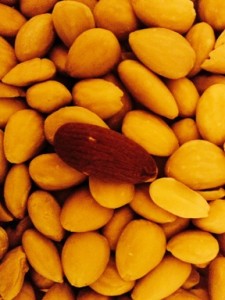 Do you lack the motivation and energy to complete tasks (especially “boring” ones)? This can be a frustrating no-end battle for people with ADHD and other self-regulation spectrum conditions (autism is a condition that can impair your ability to get things done, too; sometimes autism, also neurological, is found to be the real culprit and not ADHD; and sometimes a psychologist will assess you and diagnose you with both conditions). We’ll focus on ADHD for this blog.
Do you lack the motivation and energy to complete tasks (especially “boring” ones)? This can be a frustrating no-end battle for people with ADHD and other self-regulation spectrum conditions (autism is a condition that can impair your ability to get things done, too; sometimes autism, also neurological, is found to be the real culprit and not ADHD; and sometimes a psychologist will assess you and diagnose you with both conditions). We’ll focus on ADHD for this blog.
 If you live with a condition like ADHD, you know that you’re not dumb, lazy, or unwilling, even if other people might label you in this way. It might not take much physical/mental activity to exhaust you. ADHD is neurobiological, so you’re NOT imagining things. You feel lousy and have trouble keeping up with life’s demands because you have a real condition. Read Driven to Distraction and get educated on ADHD. If you have not sought a formal diagnosis, you might consider doing so now to get the help you need. Even if you’re 40 years old, it’s not too late. The right diagnosis will help you get the right accommodations at school and work.
If you live with a condition like ADHD, you know that you’re not dumb, lazy, or unwilling, even if other people might label you in this way. It might not take much physical/mental activity to exhaust you. ADHD is neurobiological, so you’re NOT imagining things. You feel lousy and have trouble keeping up with life’s demands because you have a real condition. Read Driven to Distraction and get educated on ADHD. If you have not sought a formal diagnosis, you might consider doing so now to get the help you need. Even if you’re 40 years old, it’s not too late. The right diagnosis will help you get the right accommodations at school and work.
So, what CAN you do to beat the fatigue and get yourself “unfrozen” to get things done?
Force yourself now to start AND keep a diary

Why a diary? You need to learn about yourself. What are your energy patterns over time? Recording how you feel each day in a diary should help you notice patterns in how your energy waxes and wanes over time. Each day, you would record in your diary the following data about yourself:
mood
energy
amount of sleep
diet
level of exercise/activity
life events/stressors on particular days
for women, monthly hormone fluctuations
Here’s how your diary might look:
July 1, 2013: Exhausted, irritable, low energy, 5 hours of sleep, ate too much leftover Mexican before bed, surfed the Internet until wee hours, sedentary day, boss yelled at me in front of co-workers, PMSing, my cat is throwing up and the vet is out of town
 Now July 1 may be have been a washout from every angle—but at least when you look back on it in your diary, you will know why:
Now July 1 may be have been a washout from every angle—but at least when you look back on it in your diary, you will know why:
- You slept just 5 hours as not only did you go to bed too late, but also your late night Internet surfing habit caused insomnia.
- Your stressful day threw you into a feeding frenzy which took place too close to bedtime.
- You have premenstrual syndrome and you would feel irritable even if your day had gone swimmingly.
- You are worried about your sick cat.
- You were humiliated by your petty, tyrannical and unpredictable boss.
 Once you keep a daily record of these variables, you should begin to see some patterns after a few months. Your reward—you should be better able to predict when to “schedule” more cognitively demanding activities like writing papers.
Once you keep a daily record of these variables, you should begin to see some patterns after a few months. Your reward—you should be better able to predict when to “schedule” more cognitively demanding activities like writing papers.
I know: “scheduling” writing is not always practical and realistic for the day-to-day tasks, but for an ongoing project, such as writing a capstone, which can take months, knowing your rhythms and patterns can save your life.
For example, you anticipate you will be “off” around the week of September 20 and you have a paper due the week of October 20. Armed with that knowledge, you might then plan to take advantage of those higher energy times to do the bulk of your research and writing; thus, you opt to do so during the first week of October, a time you have determined your pattern to be higher energy.
This strategy doesn’t always work out right at first. Be patient. With time, the diary method (if you can stand to write in it every day) should help you recognize your patterns of higher energy times. The diary is not a panacea; it’s one more item to supplement you ADHD bag of tricks to help you cope with life’s demands.
During the lower-energy week of September 20, when possible, you might aim to UNDERSCHEDULE to avoid burnout. Mind your body’s natural rhythms.
Beware, psychological toxins
 If under scheduling is just too unrealistic, make it a priority to at least eat properly (please see below), sleep sufficiently, exercise as much as you can stand, follow a structured routine, and if you know toxic people/situations/places that trigger stress for you, avoid or minimize exposure if possible.
If under scheduling is just too unrealistic, make it a priority to at least eat properly (please see below), sleep sufficiently, exercise as much as you can stand, follow a structured routine, and if you know toxic people/situations/places that trigger stress for you, avoid or minimize exposure if possible.
Unfortunately we have reality. And most of us are stuck with at least some toxic elements as a fact of life, with overwork, co-workers, professors, and clients making demands of us, horrible bosses pulling fast ones, sudden stressful events thrust upon us, etc.
Why did I have such high energy on that particular day?
Document the dates when you had those bursts of energy. On what days did those witty insights, innovative ideas and eloquent words come to you so effortlessly? How were those days DIFFERENT from the days when NO ideas would come? Did you quit a job you hated? Fall in love? Write it down.
Some women find that about a week before menstruation, they have bursts of energy and get an enormous amount of work done, have crystal clear thoughts, and can brainstorm like no other time. Make a chart of such things and document as much as possible to measure all variables.
You are busy, but discovering your energy patterns will increase the chances that you will feel better. You know your body best, and no one else can do it but you.
Sleep: My friends are cheating, so why can’t I?
 Regular sleep patterns with relatively little deviation over weekends are essential in managing your condition. You know what happens when you stay up until 3 a.m. on a weekend when you are accustomed to an 11 p.m. bedtime during the work/school week. Monday morning will be even more of an ordeal, and you’ll likely feel irritable and exhausted. You will then be tempted to turn to heavily caffeinated and/or sugared fixes for a temporary boost and subsequent crash.
Regular sleep patterns with relatively little deviation over weekends are essential in managing your condition. You know what happens when you stay up until 3 a.m. on a weekend when you are accustomed to an 11 p.m. bedtime during the work/school week. Monday morning will be even more of an ordeal, and you’ll likely feel irritable and exhausted. You will then be tempted to turn to heavily caffeinated and/or sugared fixes for a temporary boost and subsequent crash.
Caffeine mimics estrogen and can cause a host of troubles for you, whether male (how does the idea of developing “man breasts” strike you?) or female (endometriosis, breast cancer, cervical cancer, so much cancer, too many women’s troubles to list). Your friends can cheat with little consequence, which is a depressing reality if you choose to see it that way–but it is one that you can manage.
Exercise: Take 20 minutes out of your day for movement
This is hardly news. Exercise as much as you can stand. Partner up, if you’re the social type.

Use your pet to motivate you to move. Most pet owners already know that pets are furry antidepressants–and when other strategies fail, pets can succeed in getting you out of your armchair.
You also might use psychology. Play a mind game with yourself and think of all the other things you do during your day that take only 20 minutes. Then try to move.
Do not underestimate the value of incorporating music into your workout. The right music might push even a hard-to-motivate crotchety grump to move at least a bit. According to the music therapy literature, music “organizes and energizes” and helps patients “reach therapeutic goals.”
Think I enjoy exercise? Not without a strong push. I use tricks to get off the couch. And sometimes they work. And, once I’m up and moving, I do as much as I can stand. Sometimes I feel worse. Most of the time, I tend to feel better and then get more done.
Under schedule your time
 With ADHD and similar conditions, if you underestimate what you can do in a period of time, you will probably get it just right. Imagine that a task will take 3 times as long to finish, and you may be pleasantly surprised to find you have finished it sooner.
With ADHD and similar conditions, if you underestimate what you can do in a period of time, you will probably get it just right. Imagine that a task will take 3 times as long to finish, and you may be pleasantly surprised to find you have finished it sooner.
So sign up for 12 college credits instead of 18 (not exactly practical or realistic for everyone, but under scheduling may prevent you from failing courses, too). You will probably perform better with less credits as other responsibilities vie for your time and attention. Having ADHD and other self-regulation disorders can mean it might just take you longer to finish things than someone without these conditions.
Babysitting
 This strategy has been legendary for keeping people (especially easily distracted people) on task. Why do bosses exist in most workplaces? In large part, bosses babysit. When you go home, you sometimes need a sitter there, too.
This strategy has been legendary for keeping people (especially easily distracted people) on task. Why do bosses exist in most workplaces? In large part, bosses babysit. When you go home, you sometimes need a sitter there, too.
As you did with exercising, elicit the help of a friendly babysitter in the form of a friend, a sibling, your mother. Ask that person to sit with you when you have to do boring things. Writing papers is the perfect example for some people.
Make sure you are seated at a clean, clutter-free table. Maybe this babysitter has experienced similar struggles and would welcome a mutual babysitting session. Advise them to bring a big stack of bills to write out and a checkbook to balance along with any homework they may have.
The more dreadful and boring the task, the better. Make a game of it; maybe the person who finishes the boring work first gets some kind of predetermined reward. The point of babysitting is that it keeps you accountable to someone else.
Diet
 If you have ADHD or a similar condition, you may be familiar with having multiple sensitivities, and gluten intolerances are not uncommon to people who complain about an inability to focus and complete tasks. A high complex carbohydrate, moderate protein, low simple carbohydrate, sugar free diet may be helpful.
If you have ADHD or a similar condition, you may be familiar with having multiple sensitivities, and gluten intolerances are not uncommon to people who complain about an inability to focus and complete tasks. A high complex carbohydrate, moderate protein, low simple carbohydrate, sugar free diet may be helpful.
William G. Crook, MD, states “The poor performance of the inattentive, overactive child is often caused by improper food (fuel): too much sugar and other junk food and insufficient amounts of nutrients, including carbohydrates, essential fatty acids, vitamins, and minerals.”
You may get relief from symptoms if you avoid or eliminate:
- Refined white sugar
- Artificial sweeteners
- Preservatives
- Caffeine
- Phosphates
Replace artificial sweeteners with natural sweeteners:
- Pure juice/fruit juice concentrates
- Honey
- Brown rice sugar
- Stevia
You may also benefit from the use of supplements (deficiencies in the following may cause ADHD behaviors):
- B Vitamins
- Folic Acid
- Niacin
- Pyridoxine
- Thiamine
- Iron
- Magnesium
- Calcium
- Zinc
- Taurine
The following product may be effective for some adults with ADHD:
Metagenics brand products for neurological health
Order this supplement through your local chiropractor. You may also order Metagenics products on Amazon.com or other Internet vendors.
Other supplements that may be helpful: Fish Oil
Remember when you were a little kid, and your parents or whoever nagged you to eat your fish because “fish is brain food”? Well, maybe your parents weren’t so dumb after all. Essential Fatty Acid DEFICIENCY has been proposed to cause ADHD symptoms. EPA (eidosapentaenoic acid) and DHA (docosahexaenoic acid) have been shown to benefit adults with ADHD.
The following product may be effective for some adults with ADHD:
Metagenics brand EPA-DHA Omega-3 Fish Oil
Order this product through your local chiropractor, from Amazon.com or other Internet sources.
The Paleo diet
 This is also known as the “caveman diet.” Ask yourself if our ancient ancestors suffered with ADHD, chronic fatigue syndrome, autoimmune diseases, joint pains, arthritis, rashes, and other “modern” diseases.
This is also known as the “caveman diet.” Ask yourself if our ancient ancestors suffered with ADHD, chronic fatigue syndrome, autoimmune diseases, joint pains, arthritis, rashes, and other “modern” diseases.
Now ask yourself if our ancestors ate cereal for breakfast. The fact is, a protein called gluten which is found in grains causes inflammation. Inflammation causes disease. The “caveman” diet consists of foods that are whole, simple, and noninflammatory.
When you first learn about the Paleo diet, you will find it depressing as it seems there are few things you really CAN eat (at far as those foods that you may have been CONDITIONED to eat for much of your life because, at the time you were growing up, everyone harped about how “healthy” whole wheat bread was for you and that your bowels would be in DEEP TROUBLE without THAT kind of fiber–now you can tell those same people that wheat makes you feel crummy, fat and bloated).
The good news about Paleo: you should notice better alertness, more energy and you may also experience weight loss. Gradually, as you reduce your body’s inflammation, a process known as “deflaming,” you may be able to “cheat” occasionally and introduce other foods depending on how you feel and how much inflammation you decide you can live with.
What you CAN eat on the Paleo diet:
Not much:
- Nuts and seeds
- Fruits and vegetables
- Meat, poultry and seafood
Foods that you SHOULD NOT EAT (they cause inflammation):
- All grains and grain products (white and wheat bread, pasta, cereal, pretzels, crackers, any other product made with grains or flours from grains (most packaged foods)
- Partially hydrogenated oils found in margarine, fried foods, most packaged foods
- Corn oil, safflower oil, sunflower oil, cottonseed oil, soybean oil and foods made with these oils.
- Soda, dairy, soy and sugar.
- Meat and eggs from grain-fed animals. It is almost impossible to follow THIS one. Buy lean cuts of meat.
For a more detailed list of foods to avoid and non-gluten grains, go to www.csaceliacs.org.
For other nutritional information, read “Prescription for Nutritional Healing” by James Balch and Phyllis Balch.
Don’t sue me. I am not a medical practitioner and CANNOT guarantee results. The above is intended to be informational and helpful to you. It is not a substitute for the advice of a medical professional. Through experience and my own research, I have found the above strategies to be helpful.
All the best in completing your writing and beating your fatigue.
Copyright © 2013 In Writing, LLC. All Rights Reserved.

